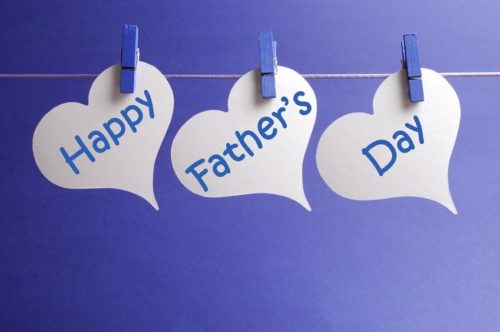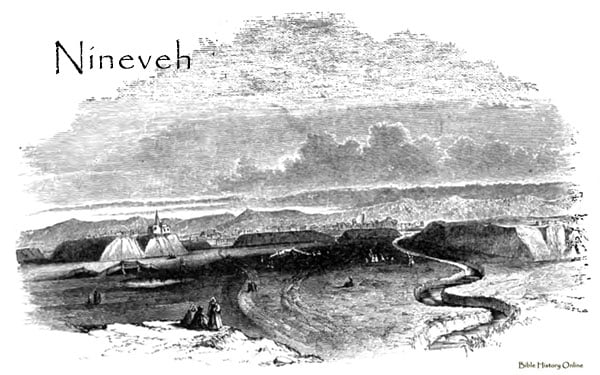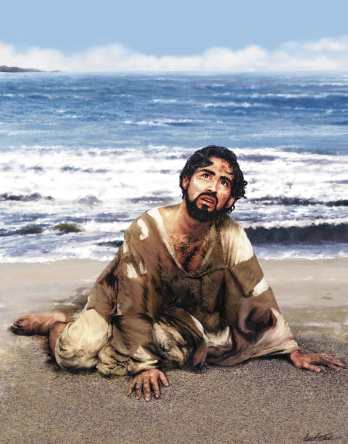 Not all men are fathers.
Not all men are fathers.
Men can long for children and not have them or lost a child in their family.
Families can have their fathers taken from them too soon.
The anticipation of what will be said (or not said) in church, especially on special occasions like Father’s Day is scary for so many.
This is what I know for sure: words really do matter. Words said in places of worship have the power to hurt as much as they can heal. Even if we think we know what someone is going through, we never really know.
As someone who has watched my own husband grieve through an infertility journey and sat with other families struggling in various ways, the words I heard over and over about these days was, “Please talk about me. Don’t leave my story out on Sunday. If you do, we’ll come to church.”
It’s no surprise that we like happy stories in the church that make sense and are straightforward to all. (Enter man with wife and X number of children beside him in the pews.)
So why not take this opportunity on Sunday to name the multitude of many ways all of us connect to fathers, are fathers and hope to be fathers?
Why not honor the ways that men can can father even if is as an uncle, a mentor or a friend?
Why not just be kind to all the men (if you're going to celebrate the holiday at all)?
Below is a responsive prayer I have used in congregational life on Father’s Day. Feel free to use or adapt in a way that fits your congregation’s needs as we all seek to be a welcoming as we can to all on Sunday morning!
______________________
Fathers meet us in some very different ways, and today we celebrate them all!
Thank God for the gift of fatherhood!
For those men who have left this earth and who we dearly miss.
Thank God for the dads whose legacy remain strong.
For those men for whom we had/ have difficult relationships as fathers.
Thank God for being our Dad when we needed You the most.
For those men raising his children now making sacrifices—rising early to make lunches, picking up from soccer practice and tugging kiddos in bed at night.
Thank God for the dads whose pace is so hectic today.
For those men who have taken in others’ children through adoption and foster care, showing us that the love of God far extends beyond biological ties.
Thank God for the dads with vision to include.
For those men who have lost a child to death or want to have a child and know they can’t without much trouble carrying on with the pain of lost dreams, often not being able to talk about it at all.
Thank God for the dads who carry heavy burdens.
For all the men in our community; who nurture us, support us and guide us in our becoming who show by their example fruits of love, joy, peace, patience, kindness, goodness, and faithfulness.
Thank God for the dads who love unconditionally.
We thank you, Lord, for the men who have influenced our lives in so many ways. And lift our voices in your name, O Heavenly Father in whom we adore.
AMEN
 Do you think your church is kind on Father's Day?
Do you think your church is kind on Father's Day?
Most of us would say, yes, of course!
Yet, for men who long to be fathers and are not, for any who have a difficult relationship with their biological father, or those who've lost their fathers too soon, Sundays like Father's Day can feel brutal.
ESPECIALLY when:
When we preach solely to the fathers in the sanctuary . . .
When we ask all the fathers to stand up and receive a gift . . .
When talk carelessly about joyous Father's Day plans after church . . .
Real life is so much messier than this, isn’t it? Death, loss, divorce, miscarriage, failed IVF treatments or adoptions are all a part of what it means to be love a father or be a father.
And the words really do matter. Words we say from the pulpit and church parking lots matter. Words form theology, even if we do not intend them too. (Which is probably how Father's Day jumped from a Hallmark holiday to a religious one)
As a pastor who struggled with infertility myself and listened to others who are struggling with other forms of loss, the words I hear over and over about Father's Day is this: “Please talk about me. Don’t leave my story out on Sunday. If you do, we’ll come to church.”
Churches NEED to acknowledge this Sunday the grief that the day holds for many. And celebrate the vast array of expressions of what fatherhood looks like in our society (not just biological children).
So to help with the words that might be said in your church on Sunday, below is a prayer I have used on many occasions. Feel free to borrow or adapt in a way that fits your congregation’s needs this Sunday.
______________________
Fathers meet us in some very different ways, and today we celebrate them all!
Thank God for the gift of fatherhood!
For those men who have left this earth and who we dearly miss.
Thank God for the dads whose legacy remain strong.
For those men for whom we had/ have difficult relationships as fathers.
Thank God for being our Dad when we needed You the most.
For those men raising his children now making sacrifices—rising early to make lunches, picking up from soccer practice and tugging kiddos in bed at night.
Thank God for the dads whose pace is so hectic today.
For those men who have taken in others’ children through adoption and foster care, showing us that the love of God far extends beyond biological ties.
Thank God for the dads with vision to include.
For those men who have lost a child to death or want to have a child and know they can’t without much trouble carrying on with the pain of lost dreams, often not being able to talk about it at all.
Thank God for the dads who carry heavy burdens.
For all the men in our community; who nurture us, support us and guide us in our becoming who show by their example fruits of love, joy, peace, patience, kindness, goodness, and faithfulness.
Thank God for the dads who love unconditionally.
We thank you, Lord, for the men who have influenced our lives in so many ways. And lift our voices in your name, O Heavenly Father in whom we adore.
AMEN
I Don’t Want to Go!
Jonah 3:1-5, 10
Preached June 16, 2013
Watonga Baptist Indian Mission
 I don’t know if you’ve ever had the experience in your life when you felt like God really wanted you to do something and you absolutely did not want to do what you thought He’d asked you to do.
I don’t know if you’ve ever had the experience in your life when you felt like God really wanted you to do something and you absolutely did not want to do what you thought He’d asked you to do.
I know I have.
Over a year ago, Kevin got a call from a recruiter. They wanted to talk to him about a job. It was with a big organization called Feed The Children.
On the way home from work, the day that the recruiter called Kevin, he phoned me to ask me what I thought.
“Oh that’s really exciting, honey” is what I am sure first came out of my mouth. It sounded like an exciting opportunity to do good with his job that I knew Kevin couldn’t pass up. But then there was a catch—that would be his next sentence.
“You should know,” Kevin said, “Feed The Children’s headquarters is located in Oklahoma City, OK.”
“What??” was my first word in response to that. “Why would we want to move to Oklahoma?”
The thing was is that we had a nice life and jobs for ourselves in the Washington DC area. Kevin actually liked his current job. I was the pastor of an American Baptist church like this one that I adored. We liked where we lived. Why would we want to move? After all, most of our friends and family lived on the East Coast. We counted the hours—it would be a 22-hour drive from Washington DC to OKC: at least a two day trip to get back home if we wanted to.
Soon, I was not in favor. Not in favor at all. Kevin can tell you, that there were some less than appropriate preacher like words that came out of my mouth in response.
But the more Kevin talked to the recruiter and then the organization’s leaders, it became clear that it was God’s calling for us not to stay but to go.
We were to move at least part of our lives to Oklahoma for a season. We were to join in God’s mission to feed children in need around the world. Even if it means leaving the familiar for something unknown to both of us . . .
I still wasn’t happy about it. But, during the time when we were discerning what to do next, I heard a sermon preached on the scripture passage before us today. I knew that I did not want to be called Jonah.
While Jonah is often referred to as “Jonah and the whale” as a story meant for kids, I propose today that it is not a story for only for the kids, but an adult tale meant to grow our understanding of God and God’s plans for us in the salvation stories of our lives. It’s a story that invites each of us to take a second look at our feelings about the bounds of God’s love for all people and all parts of the world—even the parts that are unfamiliar to us.
And this is the summary of what God asked Jonah to do: go preach God’s word to the Nineveties.
It is good to first consider the who’s and what’s of Nineveh and why God’s message to go preach there was completely out of the question for Jonah.
 Nineveh was the capital of Assyria. It was a city with a strong military base, the seat of all things powerful in the ancient world. If you were a small nation, you feared any contact with Assyria.
Nineveh was the capital of Assyria. It was a city with a strong military base, the seat of all things powerful in the ancient world. If you were a small nation, you feared any contact with Assyria.
Furthermore, Assyria was more than an enemy. This nation was THE enemy to end all enemies to the nation of Israel that destroyed the northern kingdom of Israel (10 of the 12 tribes) and held the two remaining tribes of Israel, Judah and Benjamin in fear for over 100 years!
Years and years of history included brutal treatment, occupation, and taking from Israel their human rights and their land.
But then, a new message came on the scene illuminating a compassionate God. A God who loved even the Assyrians—the bad guys in the story. God said, “Yes, there was a time for judgment but there was also a time for love of all the nations, included the much despised.”
We find very few details of Jonah’s life or his previous prophetic activity. He just appears out of nowhere.
In Jonah chapter 1, we get down to the main event quickly: the Lord saying to Jonah in verse two: “Get up and go to that great city of Nineveh! Announce my judgment against it because I have seen how wicked its people are!”
So not only is Jonah going to be asked to go to a faraway place, but to the dreaded enemy!
And, Jonah is told when he gets there to give a message of repentance. He doesn’t even get to say something tame. . .
It would be like a solider crossing enemy lines not with the white flag of surrender, but saying to those on the other side: “God wants you to repent for you’ve done really bad things.”
(Not exactly the words that would lead to kind hospitality from Assyria, wouldn’t you agree?)
So, of course with all of this true, Jonah was afraid.
Of course, Jonah doubted if this prophetic word was really the Lord who was speaking to him.
Of course, Jonah thought it was time to change careers, take a vacation and find his way to the other side of the known world.
Because if his previous vocation required speaking for God– a God who would now send him to Nineveh, then it was time to get a new religion or no religion at all for that matter.
We sympathize rightfully so with Jonah at this juncture, don’t we?
And so Jonah ran. We’d run away too, wouldn’t we if God sent us to a place in the world that we hated as much as Nineveh with news bad enough to get us killed?
Jonah ran away as far as he could, 750 miles away in fact. He jumped the first boat for the other side of the world. And this was until a huge storm descended upon the waters. His shipmates through lots to see who’s fault it was—a part of ancient custom. And the lots landed on Jonah. Soon Jonah was overboard and found himself swallowed up by a fish.
There was once a Sunday School teacher who taught a lesson about the story of Jonah. When she had finished, she asked her class, “Okay everybody, what did we learn today from the story of Jonah and the big fish?”
Some of the kids talked about Jonah having to preach to the bad people. Some of the kids talked about Jonah really, really not wanting to go.
And a bright little eight-year old girl thought for a moment and said, “Always travel by air.”
Smart girl, huh? Makes me want to fly next time too, right?
 So what happens if a call of God emerges in our life that no matter what we do to try to run from it, avoid it or pretend we never heart it– what happens if it doesn’t go away?
So what happens if a call of God emerges in our life that no matter what we do to try to run from it, avoid it or pretend we never heart it– what happens if it doesn’t go away?
What happens if we are called to be with “those” people and God just won’t let us forget?
What happens if we find ourselves in the shoes of Jonah?
Today is Father’s Day—the day that our country has set aside since the early 1900s to recognize the father’s in our midst just as we do with the mothers only a few weeks ago.
Though Hallmark and television commercials want to make this day into a sappy holiday with all sorts of grandeur expressions of love and appreciation—for many of us, some of the men in our lives aren’t all that. Sure, we respect them as elders, we respect them as those who gave us life or gave our children life, but they don’t seem to be the kind of people in whom we can overtly appreciate on a day like today.
But what if God calls us to those people?
Roberta Bondi, a Christian teacher at a university in Atlanta, Georgia, writes about one such experience in her life in her book, Memories of God.
Having grown up with a father she didn’t like very much, a father in whom she’d isolated herself from especially as her parents divorced and she lived in different states from her father in her high school years. She was always mad at her dad for leaving her mom, her and her sibling behind. Then she writes about a change that happened in her heart over time as she began to study the scriptures and consider what God most wanted from her:
Eleven years ago, my father’s sister, whom I had not seen since childhood, moved to my hometown and we began to spend wonderful time together. . . . . My aunt began suggesting that I go and visit my father, whom I had not seen for a number of years. I knew that he was remarried, that he was ill with emphysema, and that he was retired [He possibly could die soon]. I was terrified by the idea of a visit. I took a trip to Connecticut [where he father was living at the time]. It was not an easy trip, since I was still so afraid of him. . . . . And now, amazingly, being able to see him for the first time through adult eyes, I began to see not my childhood image of my powerful, mythical father, but rather my actual flesh and blood, real human father. In that trip, I began to learn that my father had changed over the years. He still had a good mind but from somewhere against all expectations he himself had learned a lot of gentleness. Just as surprising, considering his previous history, he had become a Christian man to the core.
Roberta goes on to write: “It still seems to me to be an astonishing gift of God’s grace that in the last years of his life I was able to stand with him as his friend who was his adult child.”
It was Roberta’s Jonah moment of decision come to live with wonderful effects.
Maybe for you in your life—your call of “go” is not to another job or city, like it was for Kevin and I. Maybe it is not to praying about and working toward a renewed relationship with an family member or friend, like Roberta Bondi.
But, I do know this: that the Jonah tale was not just a one-time deal. It’s not just a story or a metaphor as some would like to call it that doesn’t relate to us anymore.
Sure, we might not actually get swallowed up in the belly of a fish like Jonah did.
But, what I know of our God is that we are continually asked to do what is UNCOMFORTABLE to us. And, if we say no, there are consequences to our actions, we don’t get to have the fullness of blessings that can be ours in this life when we say no to God.
I believe God longs to show us—not punish us—the beauty of what can come from the most broken situations of our lives.
If we look back at our scripture passage—Jonah chapter 3, verse 5, we read that God used Jonah in the most amazing way. For, “the Ninevites believed God” as Jonah brought the message. Jonah was not harmed (as he thought he might) through being in this unfavorable situation and place. Rather, Jonah received the blessing of being God’s instrument of peace and love to an entirely new community of believers.
I am sure that you like me have your fill in the blank when it comes to who “those” people are in your life.
You have someone at work, someone in your neighborhood, or even someone in this community that really just pushes all of your buttons and you feel like if this person or persons simply opens their mouth, you’d explode.
Whoever is on your list of “those people” I invite you to reconsider the journey of Jonah. To come and get to know this God you have chosen to follow all over again and realize that yes, those people are included in God’s family too. And yes, you and I have a lot to learn from even them . . .
It’s a hard edge to sit with this morning. But, today God calls you. God calls you to all people. Let us get to loving in word and deed to those, especially those in whom we may not really want to move towards. And I know this, as we do, God will bless our steps.
Amen